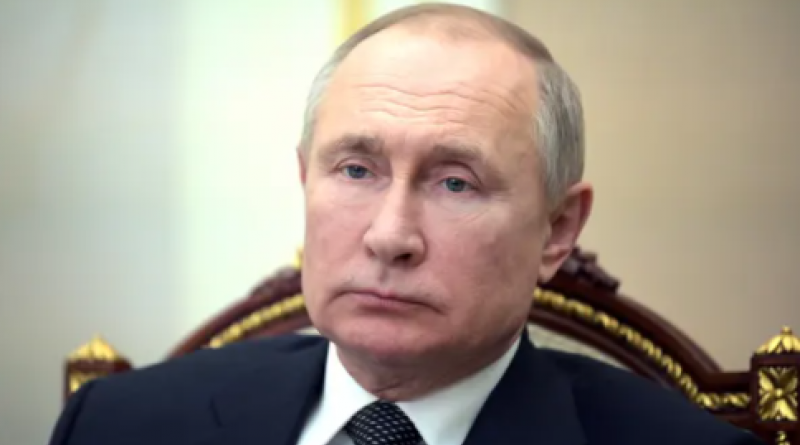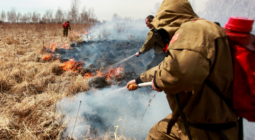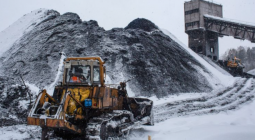Biden vows US will work with Russia on climate.

Countries with poor track records on climate change, including Brazil and Saudi Arabia, were also courted at virtual summit.
The US will work with Russia on ways to combat the climate crisis, President Joe Biden has announced, saying he looked forward to joint efforts and was “very heartened” by the country’s call for collaboration on new technologies such as carbon removal.
But though Russia’s president Vladimir Putin insisted he was “genuinely interested in galvanising international cooperation so as to look further for effective solutions to climate change as well as to all other vital challenges”, he made no mention of reducing oil and gas supply or consumption.
Putin also failed to provide any assurance that Russia would submit a new national plan on cutting carbon, a requirement this year under the 2015 Paris climate agreement.
Russia’s greenhouse gas emissions have risen strongly in recent years, and its status as one of the world’s biggest fossil fuel suppliers has been bolstered by a deal to supply gas to Germany, and could be strengthened still further if Putin’s attempts to drill under and find shipping lines through the shrinking Arctic ice cap are successful.
Paul Bledsoe, a former US government climate official and now a consultant in Washington, said: “Russia is a climate criminal. Its emissions are out of control, growing faster than any other major emitters in the last few years, and Putin seems to want to make Russia’s oil and gas his personal fiefdom. Russia is a complete outlier in climate terms.”
Putin’s presence at the White House virtual climate summit, which took place on Thursday and Friday, was because “he fancies himself as a global leader, but he stuck out like a sore thumb”, said Bledsoe.
Russia was not the only country regarded as a climate villain to attend the summit. King Salman of Saudi Arabia told other world leaders: “Enhancing the level of international cooperation is the optimal solution to meeting the challenges of climate change.”
But though the world’s largest oil producer has committed to meeting half of its own energy needs through solar power and other renewable sources by 2030, and crown prince Mohammed bin Salman received praise for his plans to plant 50bn trees, King Salman made no mention of reducing oil exports.
Saudi Arabia has a history of obstructing agreement at successive UN climate conferences in the past three decades. As the world prepares for vital UN climate talks, called Cop26, later this year, diplomats are hoping that the pressure from the rest of the world can overcome any such attempts this time.
Bledsoe warned: “Saudi was up to its usual tricks [at the White House summit]. They murmur pleasant things but then try to undermine consensus at every major juncture. We can look for them to play the same kind of blocking attempts at Cop26.”
Oil producers were not the only countries with a difficult track record on climate to be courted by Biden. Brazil prevented agreement at the last UN climate conference, called Cop25 in December 2019, and president Jair Bolsonaro has overseen a return to the widespread destruction of the Amazon that is close to irreversible.
At the White House summit, Bolsonaro insisted Brazil was intent on protecting the Amazon and repeated his goal of reaching net zero emissions by 2050. He vowed to end illegal deforestation by 2030, and double funding for enforcement, and said his efforts would result in a halving of the country’s greenhouse gas emissions by 2030.
Few green campaigners believed him. Leila Salazar-Lopez, executive director of Amazon Watch, said: “Bolsonaro once again lied to the international community. He said he strengthened regulatory bodies to protect the environment, when in fact he weakened them. Environmental regulations have been systematically rolled back and the rates of deforestation have tripled.”
Sarah duPont, president of the Amazon Aid Foundation, added: “Brazil’s promises made during the summit are considered insincere and met with great suspicion. Deforestation of the Brazilian Amazon has soared. Many of Bolsonaro’s new, as well as possible future, policies relax regulations around illegal deforestation and the protections of indigenous people. The expression ‘watch what they do, not what they say’ is appropriate in this case.”
Bolsonaro is in talks with the Biden administration and with the UK, as host and president of Cop26, over a potential deal that could see some measure of protection for the rainforest in return for billions. Critics regard the potential deal as appeasement.
Australia also used the summit to showcase its leader’s climate credentials, but omitted to make any new commitments. Scott Morrison, prime minister, said future generations would “thank us not for what we have promised, but what we deliver” and praised the country’s efforts to increase renewable energy and investments in “priority new technology solutions”.
However, he failed to commit to the net zero emissions by the 2050 target that scientists say is necessary to hold global heating within 1.5C of pre-industrial levels, and which countries responsible for two-thirds of global emissions have now espoused. He also failed to make any new commitments to reduce emissions in the next decade, which was the main point of the US summit and will be crucial to the success of Cop26 later this year.
Kevin Rudd, former prime minister of Australia, and president of the Asia Society, said: “The fact that the US’ target is almost twice as ambitious as Australia’s, and the UK’s is three times as much, shows just how isolated we have become.”
24 April 2021
The Guardian





